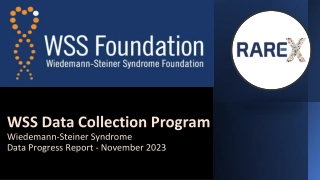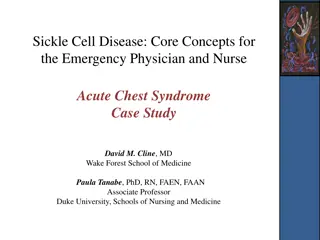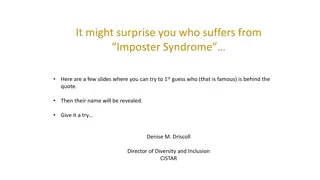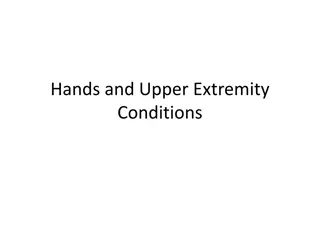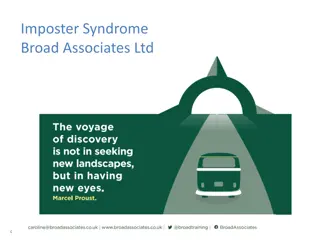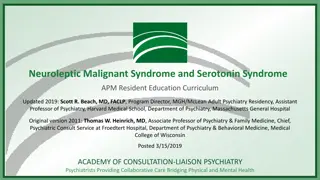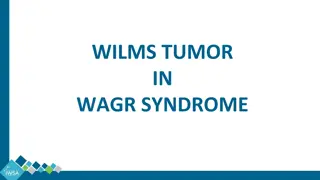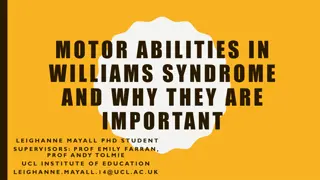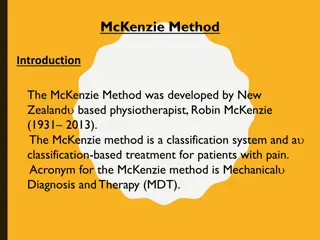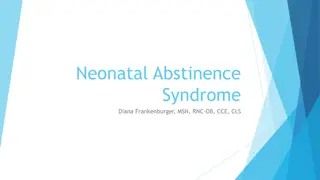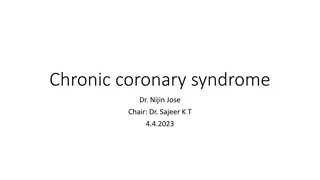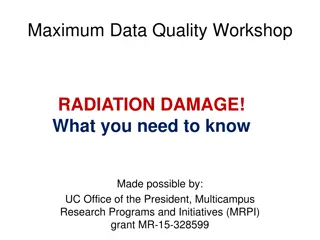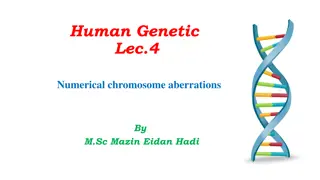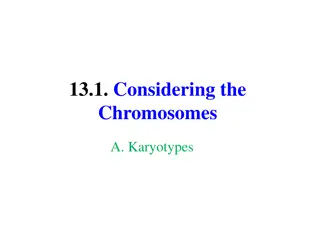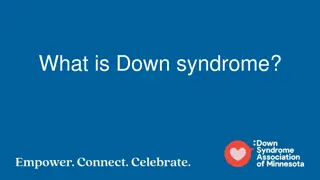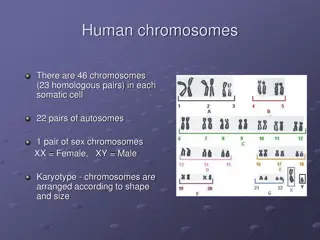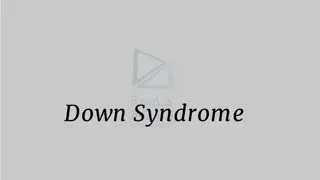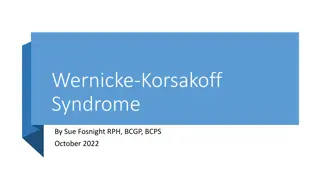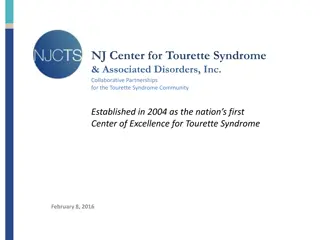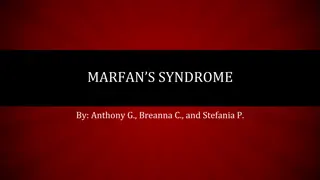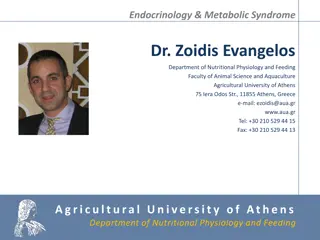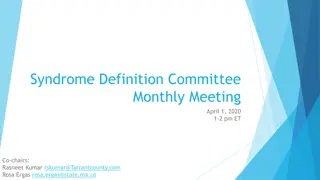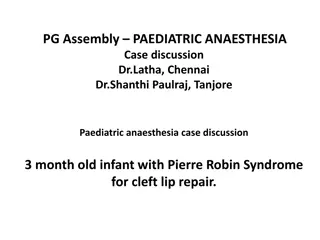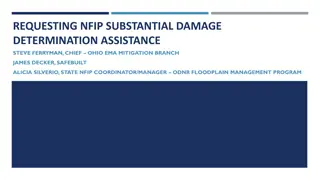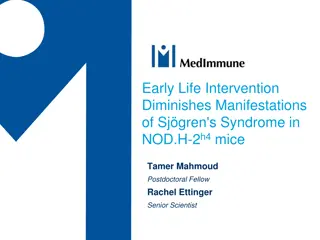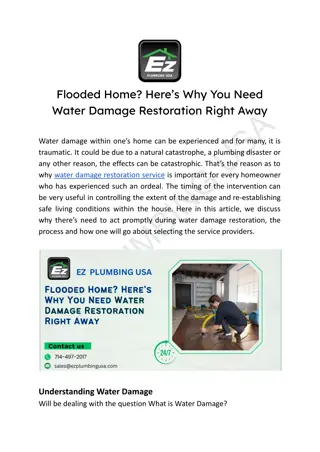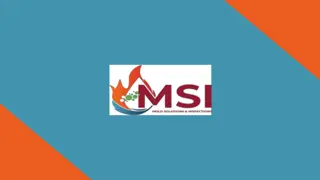Understanding Angelman Syndrome - Enhancing Lives Through Awareness
Angelman syndrome is a rare genetic condition impacting physical milestones and learning abilities. It affects around 1 in 15,000 individuals globally, with symptoms including speech difficulties, disrupted sleep, and seizures. Though there is no cure, increased awareness and research provide hope f
3 views • 20 slides
❤[PDF]⚡ Zee Zee Does It Anyway!: A Story about down Syndrome and Determination
\"COPY LINK HERE ; https:\/\/uyahsegoro.blogspot.com\/?book=B0BGNN7QZ6\n\n[READ DOWNLOAD] Zee Zee Does It Anyway!: A Story about down Syndrome and Determination | Zee Zee Does It Anyway is a Mom’ Choice Awards® Gold Recipient! PLUSReaders' Favorite gave this book a 5-star review!Have you e
1 views • 2 slides
Wiedemann-Steiner Syndrome Data Analysis and Progress Report - November 2023
This report provides insights into the enrollment, survey completion, KMT2A mutation types, reported issues, completion rates of relevant surveys, and symptoms in individuals diagnosed with Wiedemann-Steiner Syndrome. With a global perspective, the data highlights various domains of concern, offerin
1 views • 36 slides
Understanding Wolfram Syndrome: Symptoms and Implications
Wolfram Syndrome, also known as DIDMOAD, is a rare genetic disorder affecting about 1 in 160,000-770,000 people worldwide. It is characterized by the presence of Diabetes Insipidus, Diabetes Mellitus, Optic Atrophy, and Deafness. The primary genetic mutation in the WFS1 gene leads to various symptom
0 views • 22 slides
Managing Acute Chest Syndrome in Sickle Cell Disease
A case study of a 31-year-old male with sickle cell disease presenting in the emergency department with a pain crisis. The patient has a history of avascular necrosis, priapism, NSTEMI, cholecystectomy, and previous acute chest syndrome. Explore the patient's symptoms, past medical history, and reco
7 views • 19 slides
Challenges in Wind Damage Assessment Scales
The European Severe Storms Laboratory and the International Fujita Scale have been pivotal in evaluating wind damage from tornado events. However, issues such as vague damage descriptions, lack of scientific backing for wind-damage relationships, and applicability to different regions have posed cha
4 views • 25 slides
Famous Quotes on Imposter Syndrome - Can You Guess the Authors?
Discover famous quotes on imposter syndrome, try to guess the authors behind them, and learn how even well-known figures like Albert Einstein and Sonia Sotomayor have experienced feelings of inadequacy and self-doubt. Explore the prevalence of imposter syndrome and share your own experiences to crea
1 views • 7 slides
Overview of Hands and Upper Extremity Conditions
This informative content covers various hand and upper extremity conditions including nerve innervation, deformities, splints, and syndromes such as carpal tunnel syndrome and cubital tunnel syndrome. It discusses key nerves like the ulnar, median, and radial, their functions, associated deformities
1 views • 40 slides
Understanding Lightning Damage Prevention
Lightning strikes cannot be stopped, but their damage can be mitigated by redirecting the energy. This presentation explores the four basic types of lightning damage - physical, secondary effect, electromagnetic effect, and damage by ground reference potential. Learn about the dangers of lightning s
0 views • 8 slides
Managing Imposter Syndrome: Techniques and Impact
Explore the various aspects of Imposter Syndrome, including symptoms, impact, and management techniques. Understand how attributing successes, negative self-talk, and feelings of fraudulence can affect one's perception of ability and self-worth. Learn strategies such as identifying feelings, reframi
0 views • 13 slides
Neuroleptic Malignant Syndrome and Serotonin Syndrome Overview
This educational material provides an in-depth understanding of Neuroleptic Malignant Syndrome (NMS) and Serotonin Syndrome (SS) including their background, pathophysiology, clinical characteristics, differential diagnosis, risk factors, and treatment approaches. It also explores the historical back
3 views • 53 slides
Understanding Wilms Tumor in WAGR Syndrome
WAGR syndrome is a rare genetic condition associated with Wilms Tumor, aniridia, and developmental delays. Wilms Tumor is a form of kidney cancer mostly affecting children and is linked to genetic disorders like WAGR syndrome. The risk of Wilms Tumor is higher in children with WAGR syndrome, with po
1 views • 14 slides
Motor Abilities in Williams Syndrome and Their Importance
Motor abilities play a crucial role in the developmental journey of individuals with Williams Syndrome. From simple reflex movements to fine and gross motor skills, these abilities impact daily living, academic achievements, and overall cognitive and physical growth. Research on motor skills in both
0 views • 20 slides
Understanding Karyotypes and Chromosomal Abnormalities
Karyotypes are photographic inventories of an individual's chromosomes, helping determine genetic sex and detect abnormalities. Common chromosomal conditions like Down syndrome, Klinefelter's syndrome, and Turner's syndrome are discussed, along with the impact of abnormal sex chromosomes on characte
0 views • 10 slides
Understanding the McKenzie Method for Pain Management
The McKenzie Method, developed by physiotherapist Robin McKenzie, is a classification-based system for treating pain. It involves assessment, treatment, and prevention steps, with an emphasis on centralizing symptoms and promoting pain reduction. The method categorizes pain into three syndromes - Po
2 views • 23 slides
Overcoming Imposter Syndrome: How to Outwit Your Inner Voice
Discover how to outsmart your inner critic and tackle imposter syndrome effectively. Learn about the common features of imposter syndrome and ways to take action to be braver and build integrity. Challenge perfectionism, self-doubt, and limiting beliefs to shape your own success story.
0 views • 4 slides
Understanding Neonatal Abstinence Syndrome (NAS) and Opioid Crisis Impact
Neonatal Abstinence Syndrome (NAS) is a condition where infants experience withdrawal symptoms from exposure to drugs in utero, with a significant impact seen in regions like southeastern Kentucky due to the opioid crisis. This syndrome manifests through various short and long-term effects, necessit
0 views • 30 slides
Understanding Chronic Coronary Syndrome: Causes, Symptoms, and Management
Chronic coronary syndrome involves a dynamic process of atherosclerotic plaque accumulation and functional alterations in coronary circulation. It includes various clinical scenarios such as stable angina, asymptomatic ischemia, prior myocardial infarction, and more. The condition can be modified by
0 views • 131 slides
Understanding Radiation Damage in Crystallography
Explore the impact of radiation damage on crystallography, focusing on dose proportional to photons per area rather than time or heat. Learn about MGy, radiation damage world records, crystal lifetime based on flux and dose, and self-calibrated damage limits. Discover insights from various studies a
0 views • 71 slides
Understanding Numerical Chromosome Aberrations in Humans
Numerical chromosome aberrations involve the gain or loss of whole chromosomes, impacting the genome size and potentially leading to genetic mutations. Nondisjunction, where chromosomes fail to separate properly during cell division, can result in aneuploidy - the presence of an extra or missing chr
0 views • 18 slides
Understanding Chromosomal Abnormalities and Syndromes
Human cells have 22 pairs of autosomes and one pair of sex chromosomes, totaling 46. Karyotypes help diagnose chromosomal abnormalities by aligning chromosomes in size order. Nondisjunction during meiosis can lead to abnormal chromosome numbers in gametes. Disorders like Down Syndrome, XYY Syndrome,
0 views • 30 slides
Understanding Down Syndrome: Causes, Effects, and Characteristics
Down syndrome, also known as Trisomy 21, is a genetic condition caused by the presence of an extra 21st chromosome. Discovered by Dr. John Langdon Down in 1866, this condition affects individuals in various ways, influencing their development and abilities. People with Down syndrome may learn skills
0 views • 10 slides
Understanding Chromosomal Disorders and Syndromes in Humans
Human chromosomes play a crucial role in determining genetic traits and health conditions. An extra copy of chromosome 21 leads to Down syndrome, while conditions like Klinefelter's syndrome, Turner's syndrome, Trisomy 13, 18, and 23 have distinct symptoms and implications. Trisomies result from abn
0 views • 20 slides
Understanding Down Syndrome: Types, Characteristics, and Impacts
Down syndrome is a genetic condition caused by an extra chromosome, typically chromosome 21. This leads to physical and cognitive challenges, with individuals exhibiting unique abilities. The syndrome presents with distinctive physical features, such as flattened face, almond-shaped eyes, and poor m
2 views • 14 slides
Understanding Wernicke-Korsakoff Syndrome: Overview and Clinical Considerations
Wernicke-Korsakoff Syndrome (WKS) comprises Wernicke's Encephalopathy (WE) and Korsakoff Syndrome. WE presents with altered mental status, ocular signs, and ataxia, while Korsakoff Syndrome manifests as amnesia and confabulations. Untreated WE can progress to Korsakoff Syndrome in about 80% of cases
0 views • 52 slides
Understanding Tourette Syndrome: Facts and Implications
Tourette Syndrome (TS) is a neurobiological disorder characterized by uncontrollable vocal and physical tics. Despite being underrepresented, it affects around 1 in 100 individuals. TS often goes undiagnosed, leading to misunderstanding and misrepresentation. The NJ Center for Tourette Syndrome prov
0 views • 13 slides
Understanding Marfan Syndrome: Causes, Symptoms, and Effects
Marfan Syndrome is a genetic disorder affecting connective tissue, leading to various physical manifestations such as long limbs, heart and eye issues, and more. This article explores the history, inheritance pattern, symptoms, effects, and diagnosis of Marfan Syndrome, shedding light on the challen
1 views • 13 slides
Dr. Zoidis Evangelos: Endocrinology & Metabolic Syndrome Expert at Agricultural University of Athens
Dr. Zoidis Evangelos is a distinguished professional in the field of endocrinology and metabolic syndrome, currently serving as a Lecturer at the Agricultural University of Athens. With a background in biochemistry and extensive research experience, his work focuses on nutritional physiology, molecu
0 views • 12 slides
Syndrome Definition Committee Monthly Meeting Overview
The Syndrome Definition Committee's monthly meeting will take place on April 1, 2020, from 1-2 pm ET. The agenda includes an overview of the previous call, discussions on new CCDD categories, CSTE Guidance Document updates, suicide-related syndrome definitions, ESSENCE coding tips, and more. Various
0 views • 10 slides
Tools and Procedures for Radiation Damage Modeling and Intercomparison of Experiments
Calculation and comparison of radiation damage under different irradiation conditions to assess the impact on materials. Various factors affecting damage dose are considered, including atomic displacement, PKAspectrum calculation, simulation of irradiation processes, and identification of impurities
0 views • 6 slides
Thermal Shock Testing of Gel-Bonded Magnesia Refractories
Study conducted by Paul Bosomworth at Leeds University in 1986 aimed to reduce mechanical damage after thermal shock in magnesia refractories used in sliding gates. The research focused on using gel-binders and achieving optimum grain packing to enhance thermal stress damage resistance. The study al
0 views • 7 slides
Paediatric Anaesthesia Case Discussion: Challenges of Anaesthetizing an Infant with Pierre Robin Syndrome
Pierre Robin Syndrome (PRS) presents challenges in paediatric anaesthesia, especially in infants undergoing procedures like cleft lip repair. PRS is characterized by micrognathia, glossoptosis, and respiratory distress. Other syndromes associated with cleft lip include Treacher Collins syndrome, Gol
0 views • 56 slides
MSI Offers Professional Water Damage Restoration Services
There are different categories of water that can cause different degrees of damage Work with MSI specialists today for professional water damage restoration . \/\/ \/services\/water-damage-restoration
0 views • 13 slides
NFIP Substantial Damage Determination Assistance and Post-Damage Community Responsibilities
Substantial Damage Assessment is crucial in determining if properties in flood hazard areas have sustained damage exceeding 50% of their market value, requiring compliance with local floodplain management regulations. Communities participating in the NFIP play a vital role in regulating development,
0 views • 22 slides
Understanding Imposter Syndrome: Causes, Effects, and Overcoming Strategies
Imposter Syndrome is characterized by feelings of inadequacy despite evidence of success, chronic self-doubt, and fear of being exposed as a fraud. It affects individuals' work performance, leads to avoidance of additional duties, assigns success to external factors, and can result in burnout. Howev
0 views • 10 slides
Early Life Intervention Diminishes Sjögren's Syndrome Manifestations in Mice
Early life intervention has been shown to reduce the clinical manifestations of Sjögren's syndrome in NOD.H-2h4 mice, which mimic key features of the human autoimmune disease. The syndrome is characterized by salivary gland autoantibodies, ectopic lymphoid follicles, reduced salivary and tear flow,
0 views • 19 slides
Flooded Home_ Here’s Why You Need Water Damage Restoration Right Away
Need water damage restoration? Act fast to prevent mold, structural damage, and costly repairs. Learn why timely restoration is crucial and how to choose the right service provider.\n\nKnow more: \/\/ \/san-diego-water-damage-restoration\/
0 views • 8 slides
Best Professional Water Damage Restoration Services
There are different categories of water that can cause different degrees of damage Work with MSI specialists today for professional water damage restoration. \/\/ \/services\/water-damage-restoration
0 views • 16 slides
Water Damage Repair Eastvale | 24/7 Emergency Water Damage Services
Professional water damage repair in Eastvale. We offer 24\/7 emergency services to restore your property quickly. Call now for fast, reliable water damage restoration.\nknow more- \/\/ \/eastvale-water-damage
0 views • 5 slides
Expert Water Damage Repair in Poway | Fast & Reliable Service
Need water damage repair in Poway? Our expert team provides fast and reliable solutions for water damage restoration, ensuring your home is safe and dry. Contact us today for a free consultation!\nknow more- \/\/ \/poway-water-damage
0 views • 5 slides

![❤[PDF]⚡ Zee Zee Does It Anyway!: A Story about down Syndrome and Determination](/thumb/20462/pdf-zee-zee-does-it-anyway-a-story-about-down-syndrome-and-determination.jpg)
